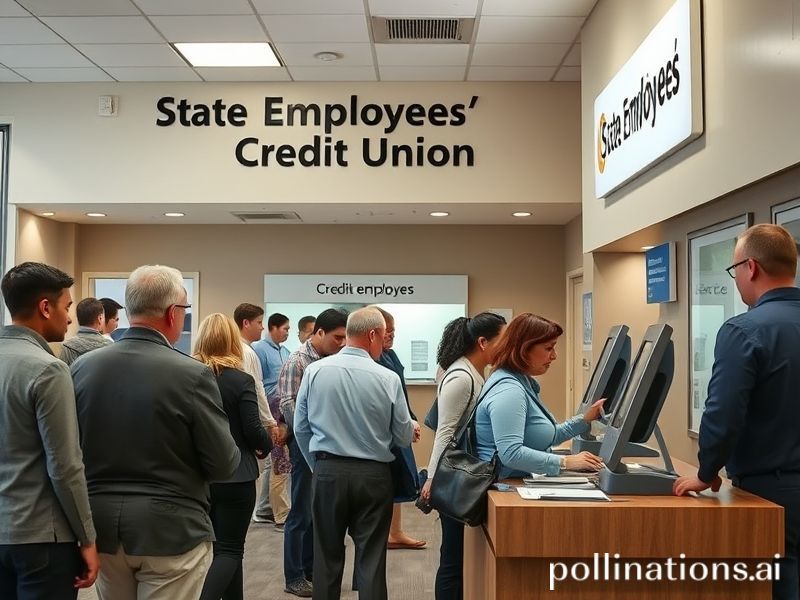State Employees’ Credit Union: Why This Humble Bank is the Hottest Global Trend
# **State Employees’ Credit Union: The Unexpected Financial Trend Taking the World by Storm**
In a world where financial institutions are often seen as cold, corporate behemoths, the **State Employees’ Credit Union (SECU)** is making waves—literally and figuratively. This financial cooperative, primarily serving public sector employees in North Carolina, has become an unlikely global trendsetter. But why? And what’s the cultural significance behind this sudden surge in interest? Let’s break it down.
## **The Rise of the Underdog**
SECU has been around since 1937, but it’s only recently that it’s captured the internet’s imagination. Why now? For starters, the credit union has been making headlines for its **generous scholarship programs, low-interest loans, and member-focused services**. In an era where big banks are often criticized for their lack of transparency and customer service, SECU’s grassroots approach feels refreshingly authentic.
But the real buzz started when SECU made a **$52.8 million donation to the University of North Carolina system**—one of the largest single donations in the university’s history. This act of philanthropy didn’t just make headlines; it sparked a global conversation about how financial institutions can give back to their communities.
## **Cultural Context: The Anti-Bank Movement**
The rise of SECU aligns with a broader cultural shift toward **localism and ethical consumerism**. People are increasingly skeptical of big banks and corporations, opting instead for smaller, community-driven alternatives. Credit unions, in particular, have seen a resurgence in popularity because they’re **member-owned, not-for-profit**, and often more flexible with their services.
SECU’s success also taps into the **gig economy and remote work trends**. As more people work remotely, they’re looking for financial institutions that offer **digital-first services** without sacrificing personal touch. SECU’s blend of **tech-savvy banking and human-centered service** makes it a standout in this space.
## **Social Impact: More Than Just Money**
What makes SECU truly significant is its **commitment to social impact**. Beyond scholarships and donations, the credit union has been a vocal advocate for **financial literacy and economic empowerment**. In a world where financial inequality is a growing concern, SECU’s model offers a blueprint for how financial institutions can **bridge the gap between profit and purpose**.
The credit union’s emphasis on **education and community development** resonates with younger generations, who increasingly prioritize **social responsibility** in their financial choices. This aligns with the rise of **ESG (Environmental, Social, and Governance) investing**, where consumers and investors alike are demanding more ethical and sustainable business practices.
## **Why This Trend Matters**
SECU’s global trendiness isn’t just about a single credit union—it’s a **microcosm of a larger cultural shift**. People are tired of faceless corporations and are seeking out **institutions that align with their values**. SECU’s success proves that **community-driven, member-focused banking** isn’t just a niche idea—it’s a viable, scalable model.
Moreover, SECU’s rise challenges the notion that **financial institutions must be cold and corporate**. By prioritizing **people over profits**, SECU is redefining what it means to be a bank—or, in this case, a credit union.
## **Conclusion: The Future of Banking is Local**
The State Employees’ Credit Union may have started as a small, regional institution, but its impact is now **global**. Its success is a testament to the power of **community, ethics, and social responsibility** in finance. As more people seek out **alternatives to big banks**, SECU’s model offers a compelling vision for the future of banking—one that’s **human-centered, transparent, and deeply committed to making a difference**.
So, whether you’re a public sector employee in North Carolina or a digital nomad in Europe, SECU’s story is a reminder that **finance doesn’t have to be soulless**. The future of banking might just be **local, ethical, and community-driven**—and SECU is leading the charge.
—







